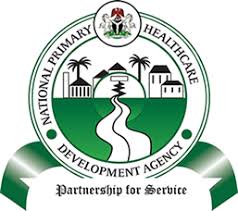The National Primary Healthcare Development Agency (NPHCDA) reports that Nigeria has recorded a 46 percent drop in cases of variant poliovirus compared to the previous year.
The announcement was made on Tuesday in Abuja during the Second Quarter 2025 review meeting of the Northern Traditional Leaders Committee on Primary Health Care Delivery (NTLC). Alhaji Sa’maila Muhammad Mera, the Emir of Argungu, chaired the meeting.
The positive development indicates that ongoing efforts to combat the highly contagious viral disease, which primarily affects children under five, are yielding results. The disease can cause paralysis, respiratory problems, and, in some cases, death.
The virus spreads through contaminated food, water, or direct contact. Most infections show no symptoms, but some cause fever, fatigue, and limb pain.
Polio is completely preventable through vaccination, which is why campaigns like Nigeria’s NTLC-led efforts are critical.
In his welcome remarks, Mera urged members to intensify their efforts, stressing that the final stretch in the fight against poliovirus was often the toughest.
”We must not relent in our commitment to stopping the transmission of cVPV2 in our Emirates and Kingdoms.
”It is indeed a sacred duty we owe our people whom Almighty Allah has placed under our care,” he said.
The Emir also bemoaned the challenges in the uptake of other integrated services during vaccination campaigns, noting low acceptance of HPV vaccines and anti-malaria interventions in some areas.
He called on traditional leaders to educate communities, reassure caregivers, and mobilise households to embrace all vaccines.
”We must redouble our efforts to educate our communities, reassure caregivers, and encourage households to embrace vaccination, as vaccines work,” he stressed.
Mera also commended NPHCDA and its partners for introducing the strategic shift in vaccination campaigns and welcomed support from Gavi for intensified community sensitisation.
”This support is a clear attestation of the confidence and trust the global community has in the NTLC,” he said.
Dr Muyi Aina, Executive Director/Chief Executive Officer (ED/CEO), NPHCDA, said that the reported poliovirus cases had declined from 78 per cent recorded last year to 46 per cent as of today.
”We don’t want to be caught unprepared. This is why we are calling on the collaboration of the media to complement the efforts of our traditional leaders. We are also a voice of the people, and time is not on our side,” Aina said.
Aina also noted progress in high-burden states such as Kano and Katsina, where infections dropped by 85 and 84 per cent respectively.
He said that between April and June 2025, over 71 per cent of planned settlements were reached during campaigns, rising to 78 per cent in June, while vaccination coverage increased from 81 to 84 per cent.
He also addressed persistent challenges including fake finger-marking and insecurity, which he said undermined the credibility of the campaigns.
”When vaccinators are appointed from Abuja or state capitals, the community does not know them, and there’s no accountability.
”But when traditional leaders are involved in the selection, it improves trust and compliance,” he explained.
He emphasised that providing accurate information to parents remained critical, as no mother would knowingly endanger her child.
In the same vein, Dr Sam Okiror, Senior Programme Officer of the Bill & Melinda Gates Foundation (BMGF) in Nigeria, in a goodwill message delivered by its Representative on behalf of the Country Director, commended traditional leaders for their commitment to past immunisation drives, including the newly introduced Human Papillomavirus (HPV) vaccine.
Okiror noted the success of the strategy which empowered traditional leaders to supervise and hold vaccination teams accountable, adding that the approach helped address challenges such as fake finger-marking and non-compliance.
He however identified two pressing obstacles; low routine immunisation coverage and insecurity in states such as Zamfara, Sokoto, Kebbi, Katsina, Niger, and Borno.
”Low routine immunisation rates, especially in northern states, continue to contribute to the transmission of variant poliovirus and other vaccine-preventable diseases.
”Traditional leaders can play a crucial role in encouraging fathers to support mothers in taking children for immunisation,” he said.
He also urged royal fathers to negotiate safe passage for vaccinators and other primary healthcare services in security-compromised communities.
UNICEF Nigeria Country Representative, Ms Wafaa Saeed-Abdelatef, expressed optimism that Nigeria was nearing the final stretch of polio eradication.
She, however, warned that nomadic and mobile populations as well as children in insecure and hard-to-reach areas continue to miss vaccinations.
”We are hopeful that we are now at the final stretch in Nigeria, and also globally.
”Still, nomadic and other mobile populations characterised by frequent movement and limited access to healthcare services continue to pose a challenge to polio eradication efforts, along with other issues such as water and sanitation,” Saeed-Abdelatef said.
She emphasised the critical role of traditional rulers in breaking transmission in the Lake Chad region where cultural and linguistic ties extend across 17 countries.
She also sought the support of traditional rulers in the upcoming integrated measles, rubella, and polio vaccine campaign, which will introduce a new vaccine into Nigeria’s routine immunisation programme.
Saeed-Abdelatef also confirmed progress in primary health care revitalisation, noting that over 1,160 facilities have been upgraded nationwide, with another 2,800 in the process of being equipped.
”More than 54,000 zero-dose children were reached last year, and 774 health fellows have been deployed to strengthen local-level service delivery,” she said.
She noted that traditional leaders’ engagement remained central to vaccination successes, ensuring supervision, accountability, and improved compliance among caregivers.
“With sustained collaboration among government, communities, media, and traditional institutions, Nigeria can finish strong in its race to eliminate the virus,” she said.
The NTLC meeting attended by government representatives, development partners, and traditional rulers from 19 states and the FCT, provided a platform for experience sharing, strategic alignment, and reinforcement of community-led approaches in polio eradication and primary health care delivery.



